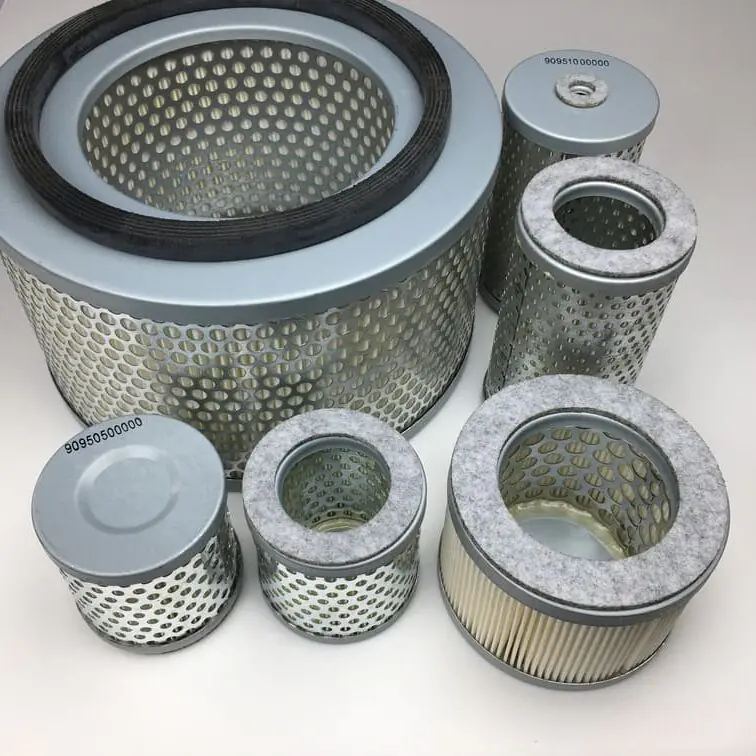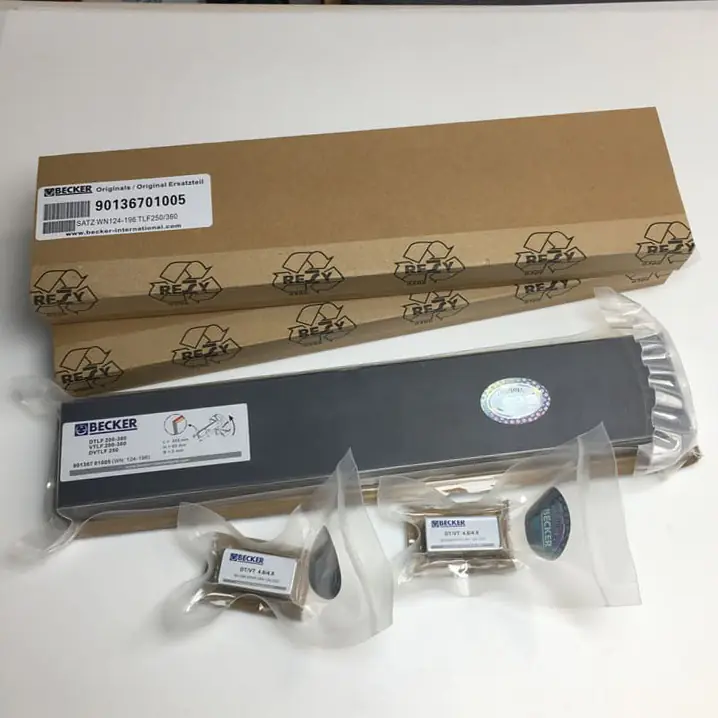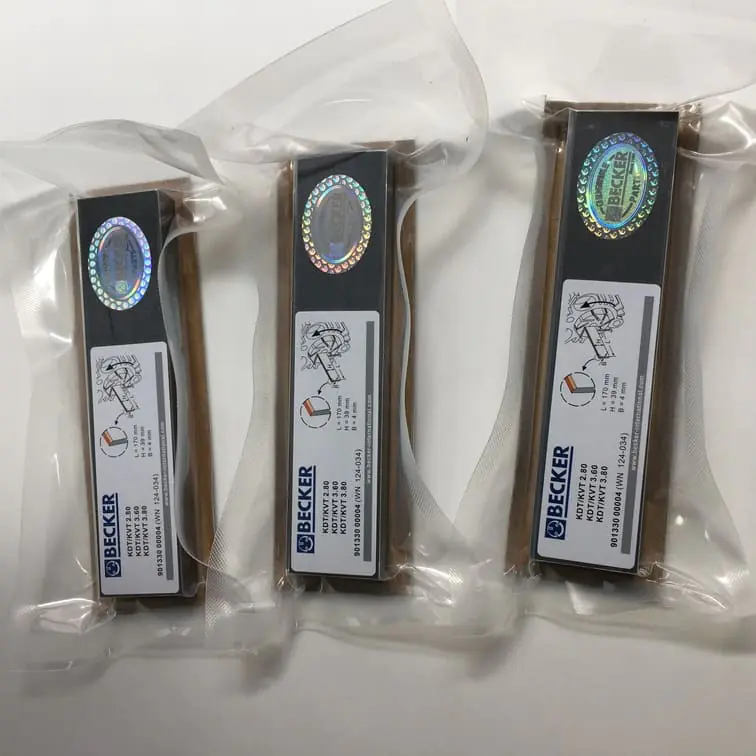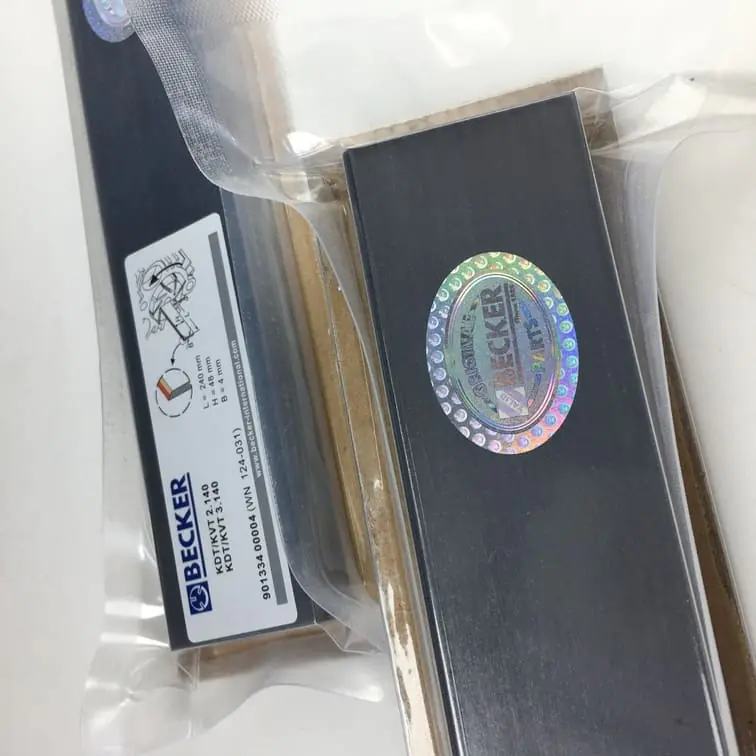What is Vacuum Pump Oil Made Of?
Vacuum pump oil is the unsung hero that keeps vacuum pumps running smoothly and efficiently. It serves multiple purposes—lubricating moving parts, sealing potential leaks, and acting as a medium to trap contaminants. If you’ve ever wondered, “What is vacuum pump oil made of?”, this comprehensive guide will provide an in-depth look at its composition, properties, and the different types of oils used in vacuum pump applications. Let’s dive into the details and understand why vacuum pump oil is crucial for your system’s performance.
Understanding the properties of vacuum pump oil is essential for selecting the right oil that suits your specific type of vacuum pump and application needs. Whether you’re running a rotary vane pump, diffusion pump, or dry pump, choosing the correct oil makes all the difference in efficiency, operational life, and maintaining optimal vacuum levels.
What is Vacuum Pump Oil?
Vacuum pump oil is a specially formulated lubricant designed to optimize the functioning of vacuum pumps. It primarily serves as a medium that helps create and maintain a vacuum by reducing friction between moving parts and preventing leaks. It is not just any oil—vacuum pump oil has properties that make it suitable for use in low-pressure environments, ensuring consistent and reliable performance.
Common Components of Vacuum Pump Oil
Vacuum pump oil consists of:
- Base Oil: Most vacuum pump oils are made from mineral oils, synthetic oils, or ester-based fluids. The base oil plays a critical role in determining the performance and viscosity of the vacuum oil.
- Additives: These oils often contain anti-oxidants, anti-wear additives, and rust inhibitors to enhance their effectiveness in harsh operational conditions.
- Viscosity Improvers: These components help maintain the oil’s stability, ensuring that the oil performs well across a wide range of temperatures and operating conditions.
Types of Vacuum Pump Oil
- Mineral-Based Oil: Derived from refined crude oil, it is commonly used in rotary vane pumps.
- Synthetic Oil: Often used for high-temperature or high-capacity pumps, synthetic oils are more expensive but offer improved thermal stability.
- Ester-Based Oil: Suitable for applications that require high chemical resistance and low vapor pressure.
Choosing the correct vacuum pump oil is essential for the reliability of your pump. Different applications have different requirements—for example, rotary vane pumps, used in laboratories, might need a specific oil that can endure the heat generated during extended operation.
Functions of Vacuum Pump Oil
1. Lubrication
One of the primary functions of vacuum pump oil is lubrication. It reduces friction between the various moving components within the pump, thereby reducing wear and prolonging the pump’s lifespan.
Quote: “A well-lubricated vacuum pump can run efficiently for years with minimal maintenance.”
2. Sealing
Vacuum pump oil acts as a sealing agent. The oil helps maintain a tight seal within the pump, which is crucial for preventing any atmospheric air from entering the vacuum chamber. A properly sealed pump is necessary to maintain the desired vacuum level and ensure efficient operation.
3. Heat Dissipation
The vacuum pump generates heat during operation. The oil helps in dissipating this heat, thereby preventing overheating and potential damage to the internal components.
4. Contaminant Removal
The oil also acts as a trap for contaminants. It captures dust, particulate matter, and gases that may enter the pump, which helps maintain a clean environment inside the vacuum chamber and ensure effective pump operation.
Types of Vacuum Pumps and Suitable Oils
Vacuum pump oil should be matched to the type of vacuum pump being used. Let’s take a closer look at different types of pumps and the most suitable oils for each:
1. Rotary Vane Pumps
Rotary vane pumps are the most common type of vacuum pumps, used widely in automotive and industrial applications. These pumps use mineral-based vacuum pump oil, which provides the right balance between cost and performance.
Recommended Product: Becker Air Filter Oil for Rotary Vane Pumps — Ensures longevity and efficient operation of rotary vane pumps.
2. Diffusion Pumps
Diffusion pumps are commonly used in scientific applications requiring high vacuums, such as electron microscopy and mass spectrometry. These pumps use ester-based oils because of their low vapor pressure and ability to handle high temperatures without breaking down.
3. Dry Pumps
Dry pumps do not use oil for their primary function, but they may have lubricated components. Dry vacuum pumps are used in pharmaceutical or semiconductor industries where oil contamination is a concern.
Tip: For optimal performance, always use oils that are specifically recommended by the pump manufacturer, like Mann-Filter replacements, which have been engineered to work well with vacuum pump systems.
| Pump Type | Recommended Oil Type | Application |
|---|---|---|
| Rotary Vane | Mineral-Based Oil | Automotive, Industrial |
| Diffusion | Ester-Based Oil | Scientific Applications |
| Dry Pump | N/A | Pharmaceutical, Semiconductor |
Properties to Consider in Vacuum Pump Oil
When choosing vacuum pump oil, you need to consider several essential properties to ensure it meets the demands of your vacuum system.
1. Viscosity
The viscosity of vacuum pump oil affects how well it lubricates the pump. A higher viscosity may provide better lubrication but could also lead to increased resistance, which can affect pump performance. Medium viscosity is often ideal for most applications, but this could vary depending on the type of pump you use.
2. Vapor Pressure
The vapor pressure of oil must be low. If it is too high, the oil will evaporate inside the pump, reducing its effectiveness and potentially contaminating the vacuum system. Diffusion pump oil is specifically engineered to have an ultra-low vapor pressure, making it ideal for high-vacuum applications.
Important Note: Using oil with inappropriate vapor pressure could significantly hinder vacuum efficiency.
3. Thermal Stability
Since vacuum pumps can generate significant heat, the oil must have good thermal stability. Oils like synthetic blends have better thermal properties and are suitable for pumps operating in demanding environments.
Importance of Food Grade Lubricants in Vacuum Pumps
Food grade lubricants are specially formulated vacuum pump oils that meet strict safety standards to prevent contamination. These oils are used in industries such as food processing and pharmaceuticals, where any contact between the oil and products could have severe health implications.
- Non-Toxic Components: Food grade lubricants use non-toxic, biodegradable components.
- Regulation Compliance: These oils comply with FDA and NSF standards, ensuring they are safe for use in applications where they might come into incidental contact with food.
For applications requiring food-grade oil, consider checking Mann-Filter air filter replacements for related vacuum systems.
How to Choose the Right Vacuum Pump Oil
Selecting the best vacuum pump oil can be broken down into a few simple steps:
Step 1: Identify the Type of Pump
Determine whether your pump is rotary vane, diaphragm, or diffusion. Each has specific oil requirements based on its function and the pressure range it works in.
Step 2: Consider Operating Environment
Is your pump exposed to high temperatures or extreme conditions? If yes, opt for synthetic oils or those with high thermal stability. If there is the possibility of oil contaminating your product, a food grade oil should be used.
Step 3: Oil Specifications
Review the manufacturer’s recommendations for oil. It’s always wise to stick with the recommended oil type to avoid potential performance issues.
Tip: Regularly changing the oil can prolong the pump’s lifespan and keep it running efficiently. Proper maintenance should include oil changes every 500 to 1000 operating hours, depending on usage.
Frequently Asked Questions
1. What is vacuum pump oil made of?
Vacuum pump oil is typically made of mineral-based, synthetic, or ester-based fluids, along with additives to improve performance and stability.
2. Can I use any oil in my vacuum pump?
No, it is crucial to use oil specifically formulated for vacuum pumps, as general-purpose oils may not provide the required vapor pressure or lubrication needed.
3. How often should vacuum pump oil be changed?
Oil should be changed approximately every 500-1000 hours of operation, depending on the pump’s usage and the operating environment.
4. What happens if I use the wrong oil in my vacuum pump?
Using the wrong oil could result in poor vacuum performance, higher maintenance costs, and potential damage to the pump’s internal components.
5. Is food grade oil required for all vacuum pumps?
No, food grade oil is only necessary in applications where contamination must be avoided, such as in the food and pharmaceutical industries.
Conclusion
Vacuum pump oil plays an essential role in the functionality, reliability, and longevity of your vacuum pump system. Understanding the different types of oils—from mineral to synthetic—and their unique properties ensures that you make the right choice for your specific application. Whether you’re looking to maintain a rotary vane pump or ensure the efficiency of a diffusion pump, selecting the correct oil will lead to optimal performance.
Regular maintenance, including oil changes and ensuring you use the correct type of vacuum pump oil, is critical to prolonging the pump’s lifespan and maximizing efficiency. By following the guidelines outlined in this article, you can keep your vacuum systems in top-notch condition, reduce downtime, and achieve better performance in your operations.




